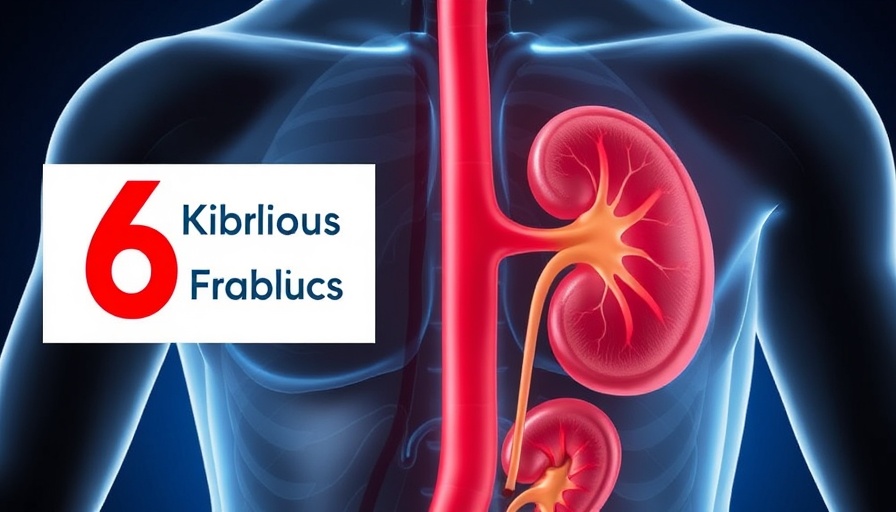
The Importance of Kidney Health in Everyday Life
As we step into March, which is recognized as National Kidney Month, it’s an opportune moment to reflect on the significance of kidney health and how we can support our kidneys through simple, everyday actions. Many people might not realize that kidney disease is more lethal than some cancers, such as breast and prostate cancer. This makes it essential to prioritize the care and maintenance of these vital organs, as they play a significant role in filtering waste, balancing fluids, and regulating blood pressure.
Healthy Habits for Kidney Health
Your daily habits can significantly influence kidney well-being. The National Institute of Diabetes and Digestive and Kidney Diseases emphasizes that embracing a healthy lifestyle is crucial not only for your heart but also your kidneys. Simple changes such as:
- Eating Nutritious Foods: Focus on a balanced diet rich in fruits, vegetables, whole grains, and lean proteins.
- Staying Active: Regular exercise can help manage weight and support overall health.
- Developing Sleep Habits: A good night’s sleep is vital for recovery and maintaining hormonal balance.
- Managing Stress: Stress management through techniques like mindfulness or yoga can aid kidney function.
- Quitting Smoking: Reducing or eliminating smoking improves overall health and lessens disease risk.
Hydration and Kidney Function
What we drink is equally important to kidney health. Limiting alcohol consumption can drastically reduce the kidneys' workload in processing harmful toxins. Also, be mindful of sugary beverages and excessive caffeine; both can contribute to complications arising from kidney disease. Hydration is vital, but moderation is key when it comes to substances like caffeine and alcohol, which can pose risks if consumed in large quantities.
Making the Right Food Choices
Kidney function can dictate which foods are best for you. For instance, while bananas are generally a healthy choice, those with compromised kidney function might need to limit high-potassium foods, as the kidneys may not filter these effectively. This shift in diet can be crucial to preventing serious health complications. Always consult with a healthcare provider to tailor dietary choices to individual kidney health status.
Recognizing the Silent Signs of Kidney Disease
Kidney disease is often called a "silent killer" because symptoms become apparent only in later stages. However, there are early signs that shouldn’t be overlooked. If you or a loved one experience:
- Changes in urination or color
- Swelling in the face or limbs
- Persistent fatigue or weakness
- Skin rashes or itching
- Nausea or vomiting
- Feeling unusually cold
- Shortness of breath
It’s imperative to consult a healthcare provider immediately for further assessment.
Why Kidney Awareness Matters
In conclusion, raising awareness about kidney health can lead to proactive measures that preserve kidney function and overall well-being. As parents and family members, understanding these health essentials helps create a supportive environment where everyone can prioritize their health. By making informed choices about nutrition and lifestyle, you can significantly impact your kidney health and empower those around you.
Let’s inspire one another to incorporate these practices into daily life and advocate for proper kidney health together!
 Add Row
Add Row  Add
Add 




 Add Row
Add Row  Add
Add 

Write A Comment